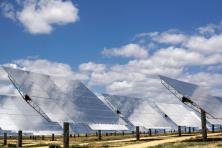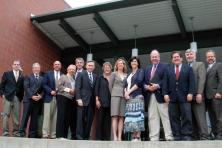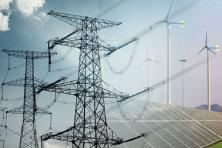This week’s news brought stark evidence that extreme weather likely caused by global climate change is threatening global food supply and destroying communities.
On Thursday, May 5, 2011, Science published “Climate Trends and Global Crop Production Since 1980,” a study demonstrating that global warming from 1980 to 2008 limited the production of food across the world.
The study tracked the effect of rising temperatures on food production, which caused dehydration, prevented pollination, and slowed photosynthesis for various crops. While not the only cause, global warming also contributed to an increase in food costs. Global food prices hit a record high in February, causing political havoc around the world.
Meanwhile, just three days earlier on May 2, the Center for American Progress released “The Year of Living Dangerously: 2010 Extreme Weather Cost Lives, Health, Economy,” a report by Daniel J. Weiss, Valeri Vasquez, and Ben Kaldunski.
The report found that unprecedented extreme weather in 2010 killed more than 380 people and injured 1,700 and caused the Federal Emergency Management Agency (FEMA) to declare 81 disasters last year. Over the past 60 years, the annual average for FEMA disasters has been 33. From CAP's report:
According to Munich Re, one of the world’s largest reinsurers, “the only plausible explanation for the rise in weather-related catastrophes is climate change.”
And as Kevin Trenberth, Sc.D., head of the Climate Analysis Section at the National Center for Atmospheric Research, explained at the American Meteorological Society’s January 2011 meeting, “Given that global warming is unequivocal, the null hypothesis should be that all weather events are affected by global warming rather than the inane statements along the lines of ‘of course we cannot attribute any particular weather event to global warming.”
In other words, says Trenberth, “it’s not the right question to ask if this storm or that storm is due to global warming, or is it natural variability. Nowadays, there’s always an element of both.”
As we watched in horror as the deadliest tornado outbreak in modern times tore across the south last week and now this week as the Mississippi continues to rise, with flooding already breaking high-water records since the 1930s, it seems time to stop debating whether human activity is causing global temperatures to rise and get on with the critical work needed to reverse the devastating effects of climate disruption.



